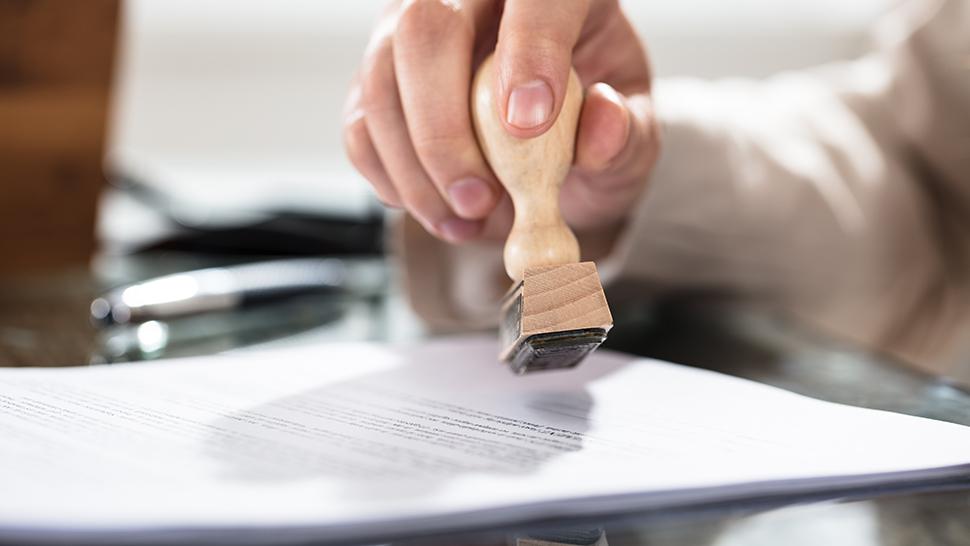How to prepare for seeing the notary?
Purchasing an existing property or off plan, a principal or secondary residence, behind every property transaction is a notary. What is their role from the reservation contract to the signing of the definitive deed of sale? How and when do they get involved and what happens when you go to see them?

The notary: key player in the property business
Nowhere in law is it written that a property sale must be concluded in front of a notary. A private agreement is sufficient to complete the transaction, but not to protect you. The only deed which constitutes proof, is recognised in court, is legally enforceable and incontestable is the definitive deed of sale which can only be signed in front of a notary. Accordingly, they have a monopoly in transfers of ownership, which gives them a unique expertise in all areas of property. As you will see, you won’t find a better advisor!
How and when do they get involved?
On the calendar of events, the definitive deed is usually signed between 2 and 3 months after the signature of the reservation contract.
However, the notary’s work begins long before that with the preparation of the deed and various formalities to be completed prior to the sale with the registry office, criminal records office, the official bulletin of transactions, planning authorities, the land and mortgage registry and the vendor’s bank.
1 month before the meeting, the notary will send you the draft of the definitive deed so you may familiarise yourself with it and if you wish show it to your own notary. They are at your disposal for any corrections, doubts or queries.
Time to do the deed.
What happens when the deed is signed?
Traditionally, the deed is signed in the office of the vendor’s notary. If the purchaser wishes their own notary to be involved in the transaction, this is called signature en double minute, which simply means that two notaries work in tandem on all aspects of the transaction; a procedure which does not incur any additional cost. This meeting takes place face-to-face and enables the notary(ies) to carry out fully their task as advisor, deciphering and explaining each paragraph of the deed for you. A proxy may be granted to enable the deed to be signed remotely.
During the meeting, the deed is thoroughly checked before being signed which seals the sale. Before the meeting, the notary’s fees must be paid and the corresponding stage payment drawn down.
Good to know: Doing the deed, but which one?
Technical progress has opened the way for the electronic definitive deed, which is now legally recognised. After an electronic definitive deed (AAE – acte authentique électronique) has been signed, a copy can be sent to the client with a certificate of ownership. Notice of signature is available in your client area to be sent on to the bank or insurance company, if necessary.
And afterwards?
After the deed of sale has been signed, the notary’s role continues with other formalities to be completed. Among them are:
-
The registration of the deed and its publication in the property register (Service de Publicité foncière – public body responsible for publishing details of property transactions), the purpose of which is to identify it
-
Payment of duty and taxes paid by the purchaser on signature. The transmission of copies and extracts of the deed of sale to the various administrative bodies
Amongst these documents is a special copy known as the "authenticated copy ", signed by the notary, and returned to him stamped by the taxation authorities. This document constitutes your title deed. The original deed will be retained by the notary in their office for 100 years before being entrusted to the departmental archives.
This is followed by the final accounting operations which concern you and the closure of your account with their practice. If you have overpaid at the time of signature, the credit balance will be forwarded to you with a statement of your account and your title deed. If you have underpaid, the notary will request an additional payment. However, in most cases the notary plans for an overpayment rather than an underpayment …

Preparing the draft deed
WHAT IS MGM’S ROLE?
In the case of a new build development, the definitive deed of sale includes notably:
- The address of the property and its location within the apartment complex or estate.
- A full description of the property and unit purchased: its position in the co-ownership complex, its surface area, the number of rooms, the materials, the fixtures and fittings included in the purchase
- The associated units: parking spaces, storage locker, box…
- The provisional handover date of the accommodation
- The amount of any late delivery penalties
- The total price of the property and the schedule of stage payments
- The conditions for exercising the right to reconsider
- The documents attached to the sales contract, including the co-ownership rules (if you are purchasing an apartment), the constructor’s insurance certificate, the plans and instructions for items of equipment purchased with the accommodation.
MGM undertakes to pass a large quantity of information to the notary with all the promptness and responsibility required to facilitate and speed up your purchase. A commitment helped by the relationships of trust built up and maintained with the notaries in the Savoyard basin who will do everything to advise you in your best interests.
![]()

< Return to Purchasing through MGM
Details of the related practical documents:


